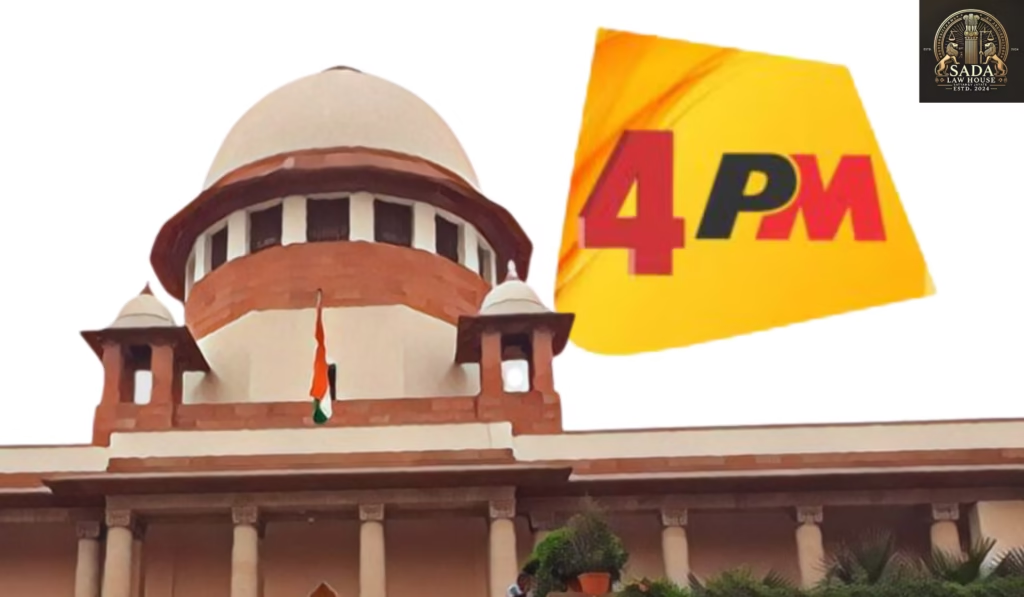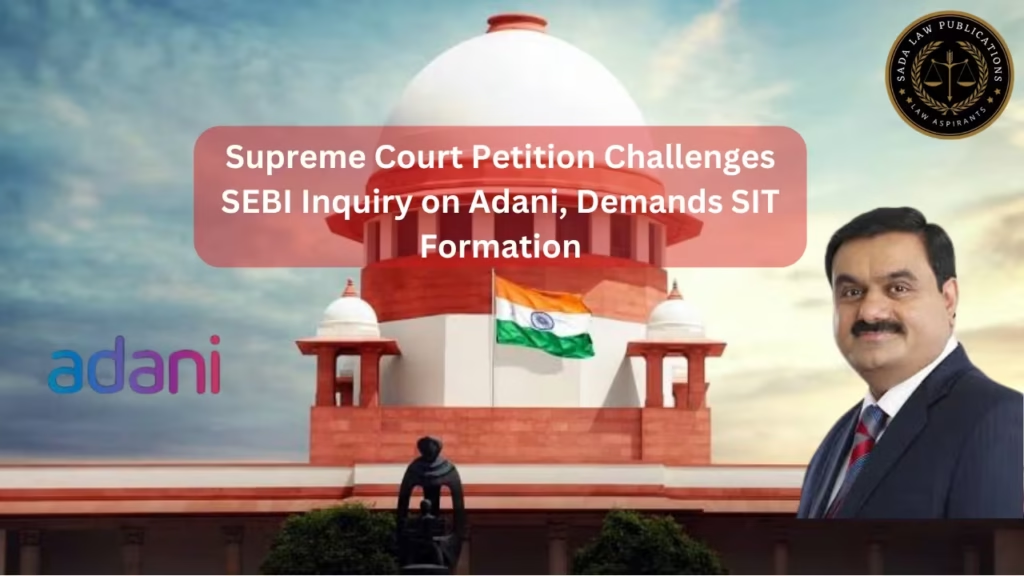Supreme Court Revokes Ban on ‘4PM News’ YouTube Channel, Questions IT Blocking Rules
Trending Today Supreme Court Revokes Ban on ‘4PM News’ YouTube Channel, Questions IT Blocking Rules Allahabad High Court Stays Suspension of UP DSP Accused of Extramarital Affair Three Lashkar Militants Killed in Shopian Encounter Amid Rising India-Pakistan Tensions Pakistan Admits Aircraft Damage After Precision Indian Strikes in Operation Sindoor Rahul Gandhi Faces Court Complaint Over “Mythological” Remark About Lord Rama in US Delhi Airport Disruptions: 97 Flights Cancelled, 150 Delayed Amid Regional Tensions Stalker Arrested for Chemical Attack on Female Advocate Amid Months of Harassment Patna HC Rules Mandatory Retirement for Unapproved Absences as Excessive: A Case Analysis Pakistan Air Force Officer Admits Role in Pulwama Attack: Tactical Brilliance or Strategic Misstep? Supreme Court Upholds Bar Council of India’s Power to Conduct All India Bar Exam for Advocates Supreme Court Revokes Ban on ‘4PM News’ YouTube Channel, Questions IT Blocking Rules MAHI SINHA 14 May 2025 The Supreme Court of India has directed the Centre to revoke the blocking order on the “4PM News” YouTube channel, raising vital questions about the IT Blocking Rules, 2009 and freedom of speech in India. Supreme Court Orders Unblocking of ‘4PM News’ YouTube Channel In a significant development, the Supreme Court of India has been informed that the Central Government has revoked its order to block the popular YouTube channel “4PM News.” Senior Advocate Kapil Sibal, representing journalist Sanjay Sharma, confirmed this during proceedings before Justices BR Gavai and AG Masih. Case Background: A Challenge to IT Blocking Rules The petition, titled Sanjay Sharma vs Union of India and Ors, challenges the legality of the action taken under the Information Technology (Procedure and Safeguards for Blocking for Access of Information by Public) Rules, 2009—commonly referred to as the IT Blocking Rules. Despite the revocation of the blocking order, the petition continues to be heard to scrutinize the rules that enabled the initial ban. “Interim Relief Has Become Infructuous,” Says Sibal When Justice Gavai questioned whether there was anything left in the case post-unblocking, Sibal responded that the interim relief was now infructuous. Justice Gavai noted that the case would persist for “scholarly purposes,” suggesting its broader implications for digital rights and constitutional freedoms. Legal Challenge Against Arbitrary Blocking Sharma’s legal team argues that the blocking of the “4PM News” YouTube channel was arbitrary and unconstitutional, violating his right to freedom of speech and expression under Article 19(1)(a) of the Indian Constitution. The action, taken by YouTube on the government’s directive, was done without prior notice or a hearing. Demands for Greater Transparency in Blocking Procedures The petition calls for: Disclosure of the blocking order and supporting documents by the Union Government Repeal or reinterpretation of Rule 16, asserting that “shall” should be treated as a mandatory directive Interpretation of Rule 8 such that both the intermediary (like YouTube) and the content creator are notified Striking down or modifying Rule 9 to ensure that individuals receive a copy of the interim blocking order and are given a chance to be heard Next Steps in the Case The Supreme Court is considering merging this petition with another case challenging the 2009 IT Blocking Rules. On May 5, notice was issued to the Ministry of Home Affairs, YouTube, and the Union Government, with further hearings expected. Conclusion: A Landmark Moment for Digital Rights in India The unblocking of the “4PM News” YouTube channel by the Supreme Court is more than just a win for one journalist—it represents a critical examination of the **IT Blocking Rules, 2009** and their impact on **freedom of expression** in India. This case highlights the urgent need for **greater transparency**, **judicial oversight**, and **constitutional safeguards** in digital governance. As the judiciary continues to deliberate, the outcome could set lasting precedents for how online content is regulated across the country. Leave a Reply Cancel Reply Logged in as Sada Law. Edit your profile. Log out? Required fields are marked * Message* Live Cases Supreme Court Revokes Ban on ‘4PM News’ YouTube Channel, Questions IT Blocking Rules Supreme Court Revokes Ban on ‘4PM News’ YouTube Channel, Questions IT Blocking Rules Sada Law • May 14, 2025 • Live cases • No Comments Allahabad High Court Stays Suspension of UP DSP Accused of Extramarital Affair Allahabad High Court Stays Suspension of UP DSP Accused of Extramarital Affair Sada Law • May 14, 2025 • Live cases • No Comments Three Lashkar Militants Killed in Shopian Encounter Amid Rising India-Pakistan Tensions Three Lashkar Militants Killed in Shopian Encounter Amid Rising India-Pakistan Tensions Sada Law • May 14, 2025 • Live cases • No Comments 1 2 3 … 5 Next »
Supreme Court Revokes Ban on ‘4PM News’ YouTube Channel, Questions IT Blocking Rules Read More »









